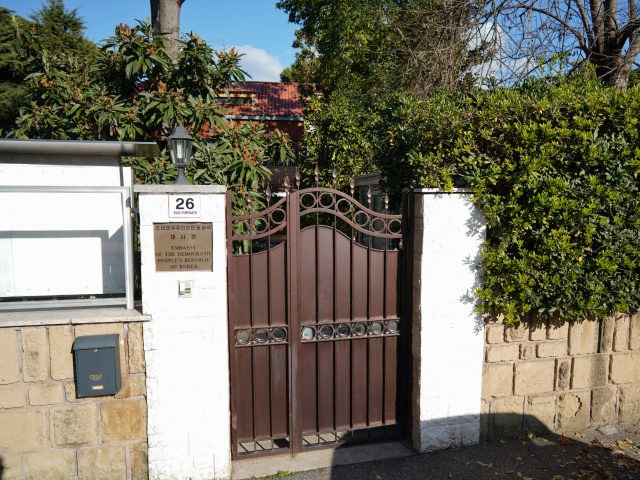South Korean intelligence officials confirmed on Thursday that the chargé d’affaires at the North Korean embassy in Rome, Jo Song-gil, and his family disappeared after allegedly leaving the country to return to Pyongyang in November.
According to the South Korean newspaper JoongAng Ilbo, South Korea’s National Intelligence Service (NIS) confirmed that their intelligence could not place Jo and his family, and he had definitely not returned to North Korea after being recalled at the end of last year.
JoongAng Ilbo reported that, according to unnamed official sources, Jo and his family are seeking asylum and attempting to defect from the repressive communist Kim regime. Other media outlets have failed to verify this claim. If Jo has fled North Korea, that would make him the highest-profile defector since Thae Yong-ho, the former deputy North Korean ambassador to the United Kingdom, fled his position in 2016. Thae now routinely speaks on internal North Korean matters and advocates against the regime.
An unnamed “diplomatic source” reportedly told JoongAng Ilbo that Jo “sought protection from the Italian government early last month” but has since attempted to seek asylum in other Western nations. The source could not confirm if Jo had been successful. The Associated Press later reported that Italian officials told reporters they had no evidence that Jo had applied for asylum there.
South Korean intelligence agents told legislators in that country that they had not attempted to contact Jo and had no information on his whereabouts “for the past two months,” according to the newswire service Yonhap. The outlet emphasized that, unlike JoongAng Ilbo‘s anonymous sources, the NIS members briefing the nation’s legislators could not confirm that Jo had begun the process to apply for political asylum in the free world.
The South Korean presidential palace, Cheong Wa Dae, also refused to confirm any details regarding reports on Jo.
“There’s nothing Cheong Wa Dae knows,” a spokesman said on Thursday.
Jo was reportedly the highest-ranking member of a delegation to Rome, consisting of four people, Yonhap noted. Half of the delegation worked on food aid issues.
Losing key diplomatic representation in Rome could significantly damage North Korea’s ability to bring in financial aid, according to Thae, who has remained an active commentator on North Korean issues in South Korean media. Thae spoke on national television Thursday about the matter, stating that “the Italian embassy was critical for North Korea because it handled negotiations with the World Food Program over food aid to the North and was a hub for smuggling luxury items to the North Korean elite.” Such services are particularly critical in light of the record international sanctions currently imposed on the regime.
While evidence has repeatedly surfaced indicating that China and Russia are helping North Korea survive the sanctions by buying coal, seafood, and other key resources, dictator Kim Jong-un relies on his ability to keep his elite wealthy and well-fed to remain in power. Without a strong presence in Italy, Thae posited, this may prove a difficult task.
While Thae confirmed that he knew and had worked with Jo, he did not provide any clues as to why Jo may have defected, if he indeed did so.
Thae’s defection could have proven a template for other diplomats to leave the country. He has remained an active pundit and columnist in South Korea, often triggering controversy. As recently as last month, protesters stormed the offices of the Daily NK site, which publishes Thae’s columns, demanding they remove him from their platform, as his pieces are generally critical of the Kim regime.
“UMG and Daily NK do not see Thae Yong Ho’s material as opposed to peace on the Korean Peninsula; rather, it clearly advocates for unification of the two Koreas under peaceful and justified circumstances,” the outlet stated in a piece on the invasive protest, asserting it would continue to publish him.
Thae issued other remarks this week, critiquing Kim Jong-un’s New Year’s address in which he threatened the United States with publicly starting up his illegal nuclear weapons program if Washington does not urge the world to lift international sanctions on his country.
Speaking to Japan’s Asahi Shimbun, Thae offered a pessimistic outlook for 2019, stating that Kim’s priority is lifting sanctions, which makes a meeting between the dictator and American President Donald Trump “less likely to take place in the near future due to differences in the expectations they hold for the meeting.”

COMMENTS
Please let us know if you're having issues with commenting.